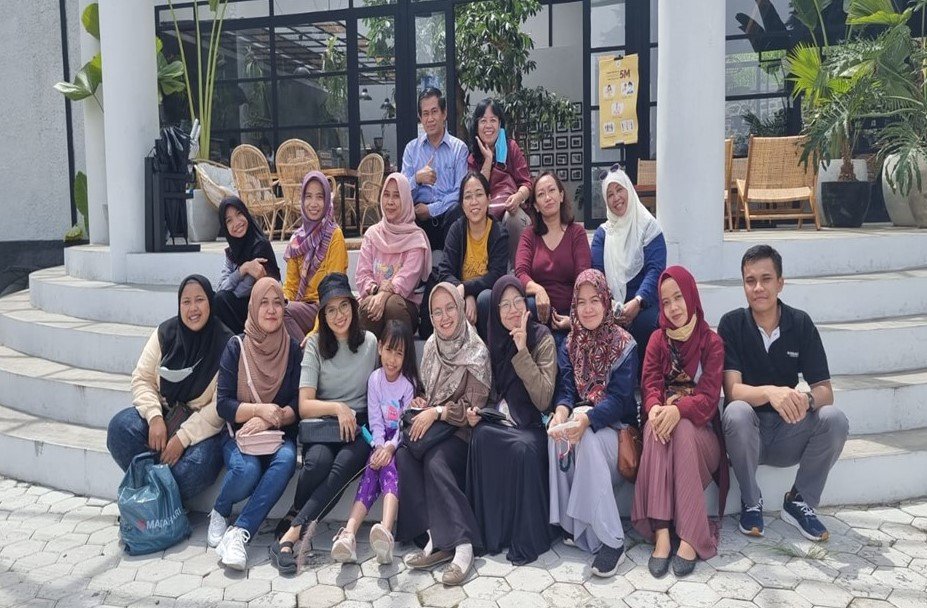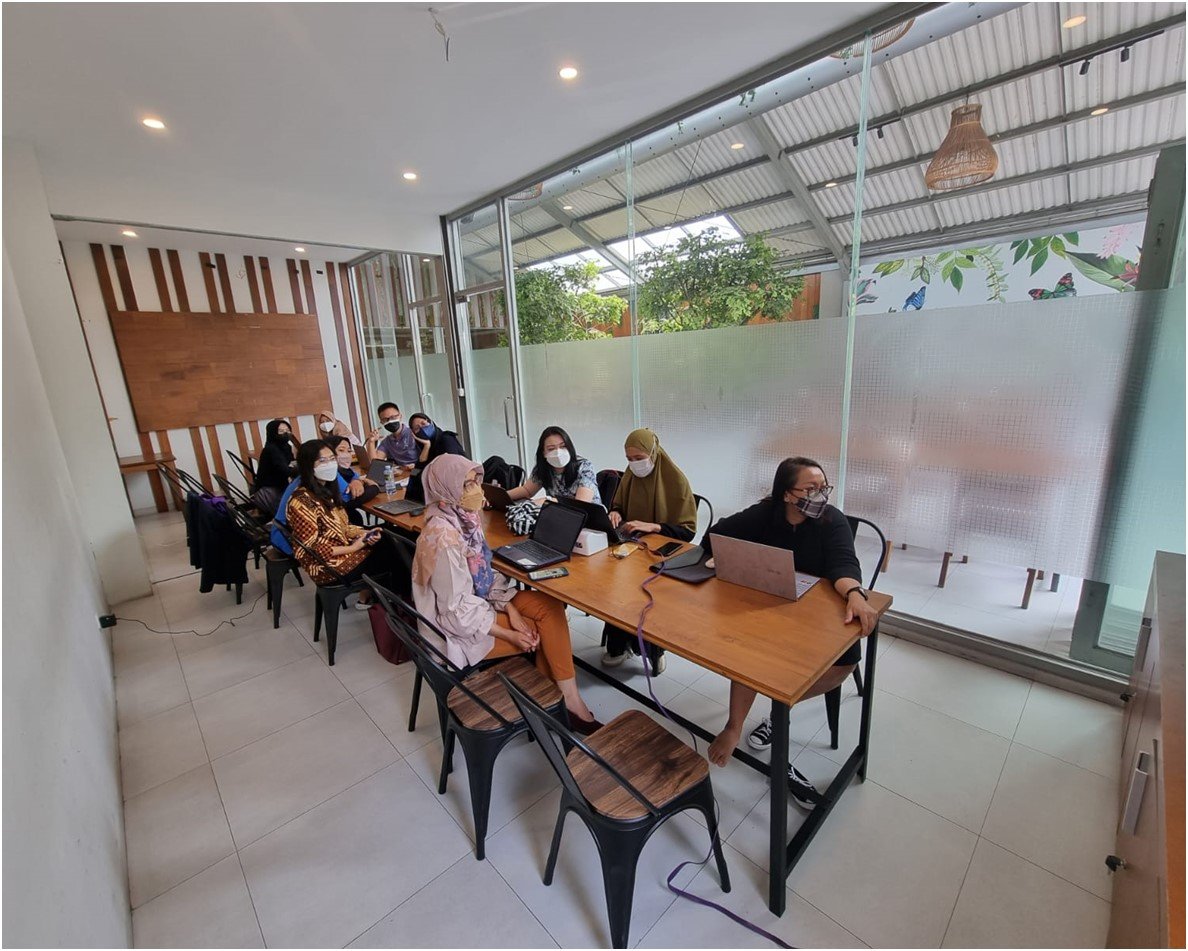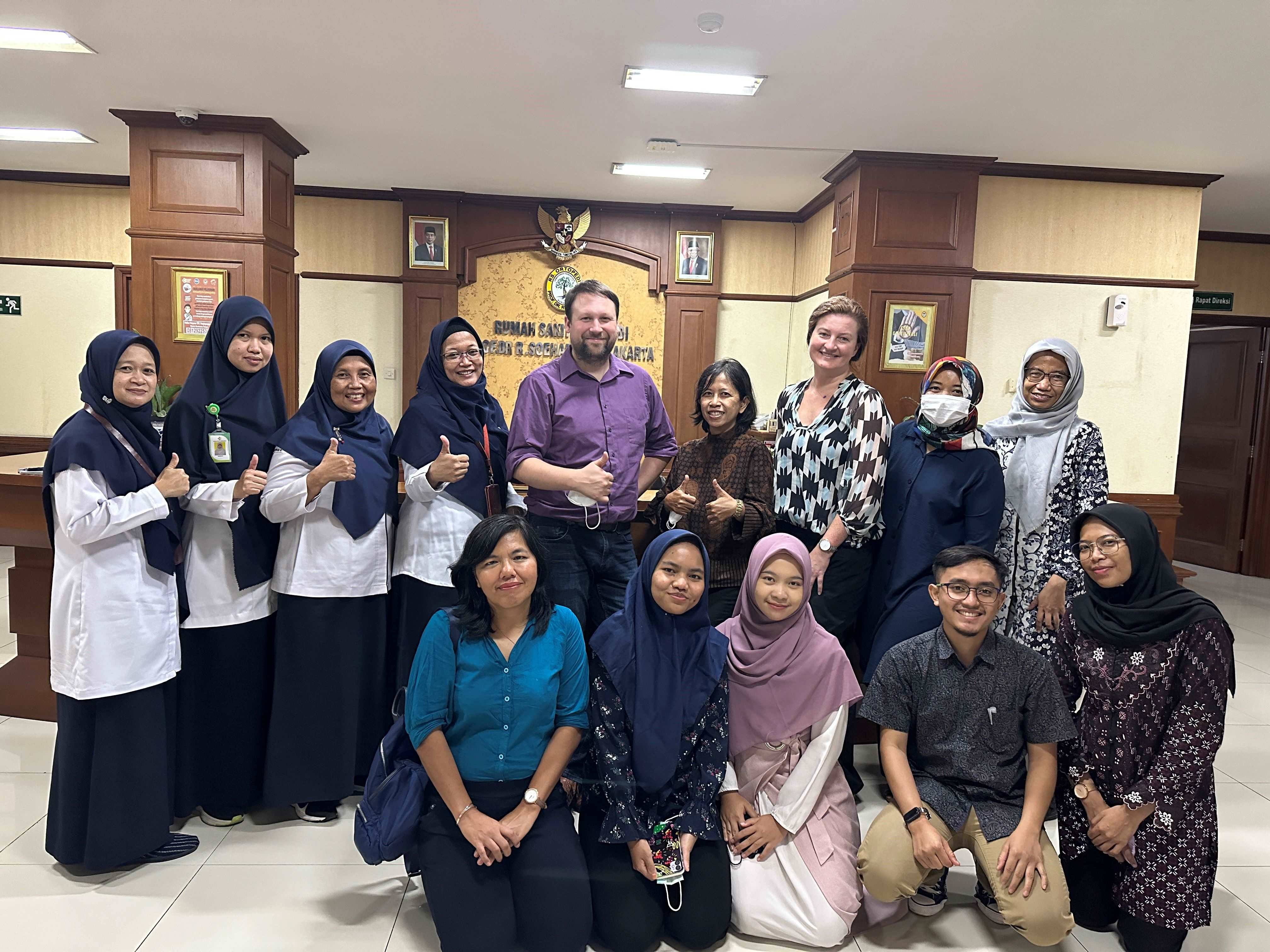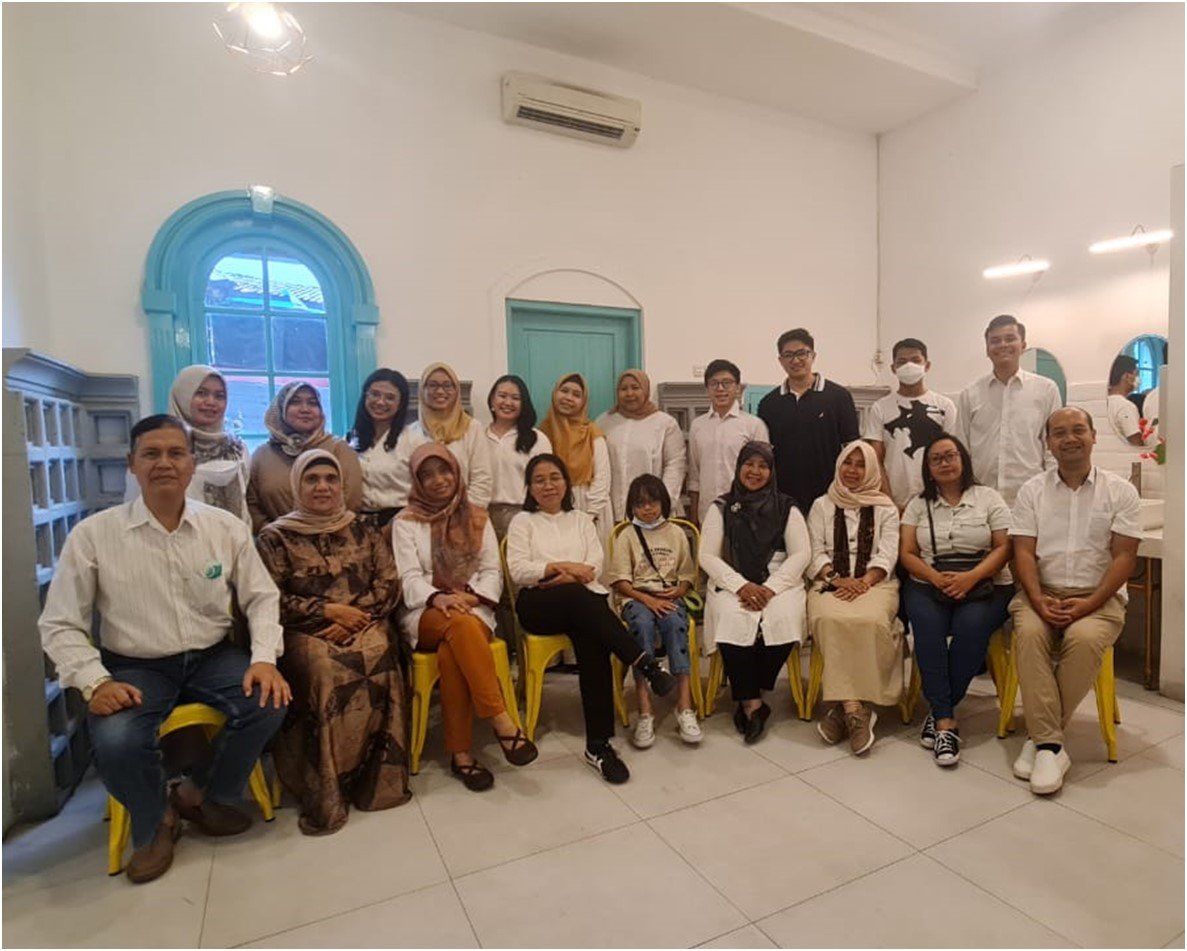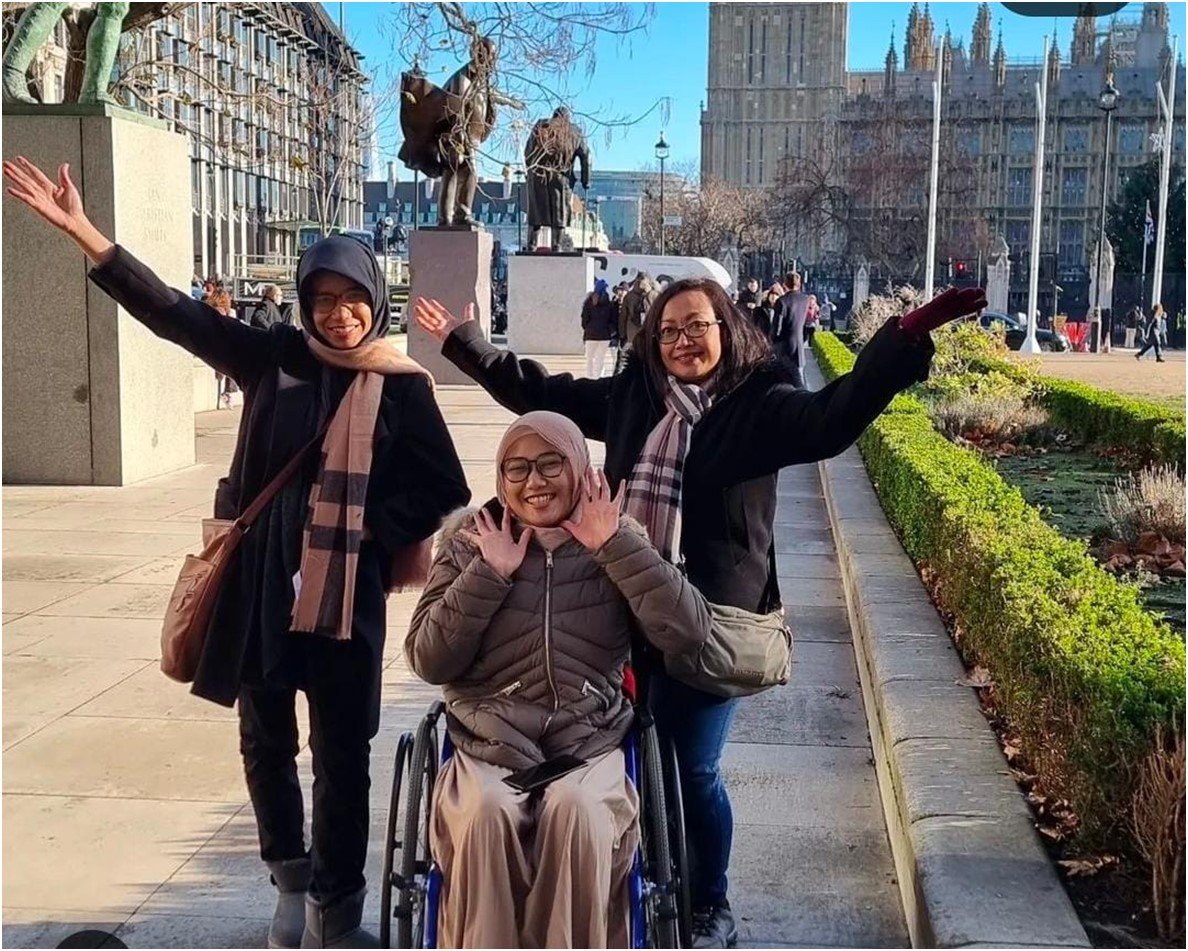In Indonesia, 72% of the workforce operates in the informal sector. Informal workers are more likely to live in poverty and have unhealthy behaviors, with higher chances of being exposed to work and home environments that might increase the risks for TB, and higher odds of unhealthy behaviors. Studies on factors related to diagnosis and treatment outcomes for this population are also limited. Screening for tuberculosis and diabetes mellitus in informal workers is likely to be beneficial to improve case finding of these diseases. Hence, it is important to improve the workers’ awareness on their health, including recognizing TB-DM symptoms and taking preventive measures through healthy behavior. Self-screenings and interventions in the workplace can reduce the physical and economic burden of non-communicable diseases. For informal workers, this can be conducted through the Occupational Health Post (OHP), which is a community-based program runs by workers focusing primarily on occupational health. As OHP is run by informal workers within their own workplaces, there is an opportunity to continue its activities and incorporate TB-DM awareness into the program.
The aim of this PEER project was to assess the feasibility of integrating screening for TB-DM in the OHP program and to develop a model to involve informal workers like farmers groups as a potential target population. As part of this project, the researchers identified the prevalence and determinants of TB-DM comorbidities and developed a community-based model for TB-DM screening in informal workers. The PI and team recruited several fellows, research assistants, and students to be part of this project, developing a strong collaborative team of younger researchers who completed degrees or achieved new academic or career milestones.
Final Summary of Project ActivitiesThe researchers analyzed the comorbidity of TB, DM, and hypertension (HT) through the 2014 Indonesian Family Life survey, using data from more than 30,000 adults. They found that the prevalence of TB-DM comorbidity was 0.1%, DM-HT comorbidity 3.77%, and TB-HT comorbidity 0.35%. The majority of respondents who had TB with DM and HT comorbidity were men over 45 years old with an educational level of primary school or lower, were past smokers, overweight, lived in urban areas with adequate ventilation, and had more than three household members.
The team then did a situation analysis of TB-DM, particularly screening for informal workers. They identified challenges such as societal stigma causing fear of income/job loss, inadequate integrative TB-DM screening for informal workers, lack of policies and health data pertaining to informal workers, and scheduling discrepancies between the health workforce and informal workers. Opportunities included empowering cadres and fostering cross-sector collaboration, including the establishment of a worker health unit (UKK) that effectively engages informal workers in health interventions.
Dr. Widyaningsih and her colleagues held a stakeholder meeting to discuss development of the SCREEN TB-DM model and undertook a literature search on validated tools for screening for symptoms for Tuberculosis and Diabetes Mellitus. Their model included a screening tool card for TB-DM screening in informal worker settings; an information sheet on TB-DM, its prevention, risk factors, and complications; a flipchart; and a full screening module. They piloted the model in two communities in Central Java, Indonesia, and conducted training for cadres and selected farmer groups. The training was also attended by primary health care workers, which improved the sustainability of this project. In this training, the farmers learned about tuberculosis, diabetes mellitus, and hypertension and were taught to assess health status using screening tools and use the equipment that supports the exams. The aim is to have farmers screen their own health status during routine gatherings.
The team presented their work at several conferences including the International Conference on Public Health for Tropical and Coastal Development; the International Conference on Health, Technology, and Life Sciences; and the Indonesia Tuberculosis International Meeting.
PublicationV. Widyaningsih, R.P. Febrinasari, V. Sari, C. Augustania, B. Verlita, C. Wahyuni, B. Alisjahbana, A. Santosa, N. Ng, and A. Probandari. 2022. Potential and challenges for an integrated management of tuberculosis, diabetes mellitus, and hypertension: A scoping review protocol.
PLoS ONE 17(7): e0271323.
https://doi.org/10.1371/journal.pone.0271323 



